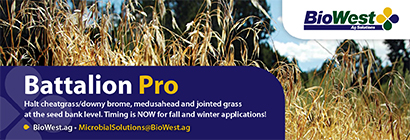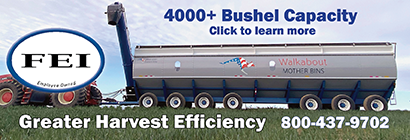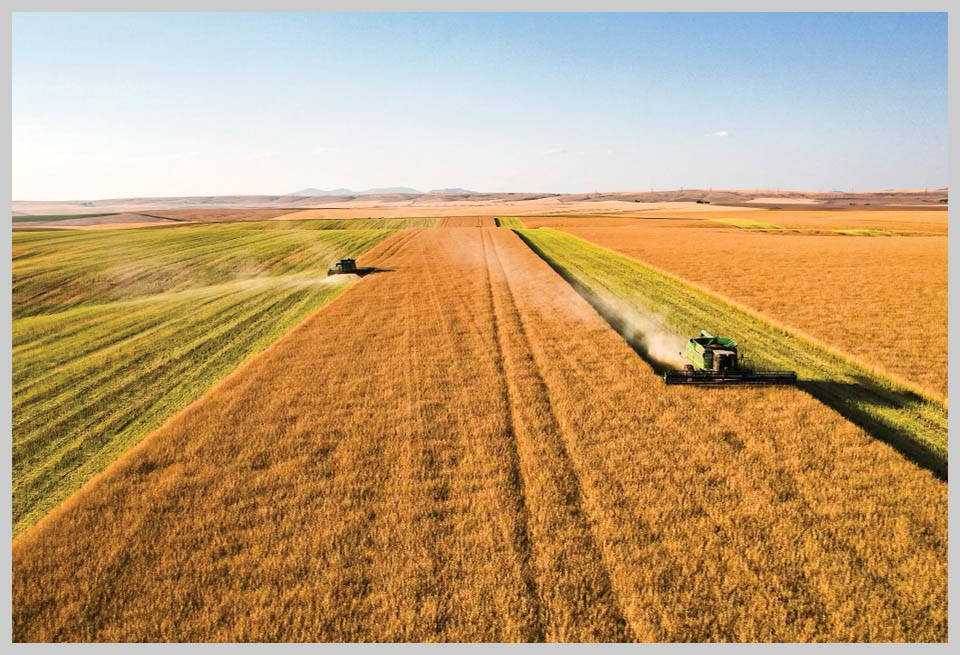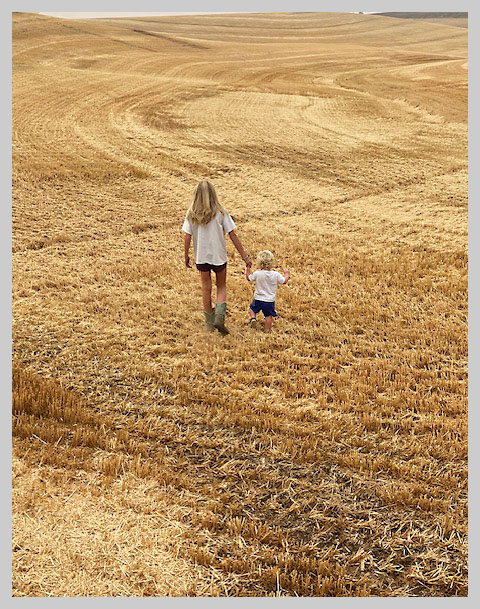Food and Farm Tour Yearly event brings legislators to Walla Walla to meet growers, hear issues
2021November 2021
By Trista Crossley
Editor

More than 60 legislators, legislative staff and industry stakeholders descended on Walla Walla in late September to take part in a two-day food and farm tour that highlighted issues facing agriculture and celebrated the region’s many farms.
Stops on the tour included a wheat farm, a grain elevator, a vineyard, a potato storehouse, a tree fruit farm, a dairy and a fertilizer company. At the wheat farm, participants discussed the toll the drought had taken on yields in 2021, impacts carbon legislation would have on fuel and other input costs and the steps growers are taking to lessen their environmental footprint. Chad Kruger, director of Washington State University’s Center for Sustaining Agriculture and Natural Resources, talked about carbon markets and the efforts to monetize them, calling them complicated. He said there are a lot of claims out there that should be taken with “a grain of salt.”
At the end of the wheat stop, tour participants sampled breads dipped in vinegar and olive oil from a Walla Walla bakery.
Michelle Hennings, executive director of the Washington Association of Wheat Growers (WAWG), said the tour was a success, bringing legislators face to face with growers and demonstrating the pressures the state’s producers are under. WAWG and the Washington Grain Commission were among the sponsors of the tour.
“Many times, lawmakers in Olympia don’t truly appreciate the impacts legislation will have on a grower’s operation. These kinds of tours are the best way to show our elected officials the struggle farmers have, working to comply with regulations and rules while still making a living and preserving the family farm for the next generation,” she said. “We all want to be good stewards of our natural resources, and we all want to keep our families, our employees and our communities safe.”
Hennings said a good example of this struggle was the new agricultural overtime rules that are set to go into effect in 2022 that don’t include any sort of seasonal exemption. At nearly every stop, growers explained that the new rules would likely hurt employees more than help them, as employers will have to cut hours to avoid paying overtime or invest in more mechanization and hire fewer employees. One vineyard manager explained that she was initially supportive of overtime pay, but when she talked to her workers who would be limited to 40 hours a week, she changed her mind, because “you can’t feed families on 40 hours.”
Lack of available labor, pesticide availability, transportation infrastructure, the lower Snake River dams, nutrient management and the possibility that the state will curtail the use of natural gas were other issues discussed during the tour.
Besides legislators and staffers, Washington’s Lieutenant Governor Denny Heck and Derek Sandison, director of the Washington State Department of Agriculture (WSDA), also participated in the tour. During the welcome reception, Heck told the group that tours like this are an opportunity for urban legislators and growers to talk and listen to one another. When asked about the issues growers should be concerned about, Heck replied he was concerned about the effects of climate change on the economy and competition with China.
At breakfast the next morning, Sandison kicked off the tour proper by reviewing the state’s agriculture industry and its impact on the state’s economy. According to WSDA records, in 2019, there were 35,900 farms in the state, of which 95 percent were family owned. Ten percent of the state’s farms produce 90 percent of the value of the state’s agricultural production. Washington produces more than 300 different crops, and the market value of the state’s crops and livestock is almost $10 billion. Nearly $6.7 billion worth of food and ag products is exported through Washington ports.
Some of the issues WSDA is currently working on include trade, keeping the state’s farmers competitive with other states and countries, labor issues and sustainability, including soil health, and water use.
The tour concluded with a stop at Second Harvest’s Pasco location and lunch at Tri-Cities Grain, which is located along the banks of the Snake River. Alex McGregor, chairman of the board of directors for The McGregor Company, talked about the need to protect the lower Snake River dams and the critical part they play in the region’s ability to move products between Lewiston and Portland. The dams are also an important part of the region’s renewable energy portfolio.

























